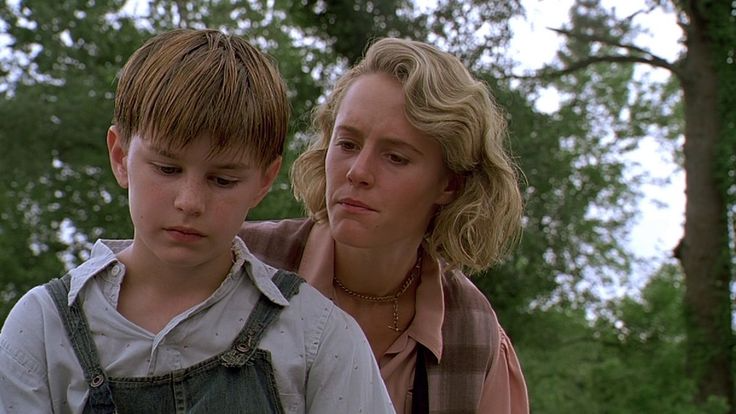
At its heart, Fried Green Tomatoes is a celebration of storytelling — not just as a form of entertainment, but as a powerful tool for survival, healing, and connecting generations. The entire structure of the film hinges on memories shared by an elderly woman, Ninny Threadgoode, with the much younger and lost Evelyn Couch. These memories do not merely recount past events; they offer Evelyn — and the audience — profound lessons about resilience, love, defiance, and self-discovery.
In Fried Green Tomatoes, memories are not static recollections of the past. They are living, breathing forces that shape the present and offer hope for the future.
Ninny’s Role: Guardian of Memory
Ninny Threadgoode is more than just a friendly old woman spinning tales in a nursing home. She represents the keeper of collective memory, a bridge between eras. Through her vivid storytelling, she breathes life back into Whistle Stop — a town that has physically faded but remains alive in the hearts of those who remember it.
For Evelyn, Ninny’s stories offer an escape from her mundane, constricting reality. But more importantly, they provide a blueprint for change. Each story — whether about Idgie jumping off a train, running her café during the Depression, or fiercely protecting Ruth — plants seeds of courage in Evelyn. Ninny isn’t just telling tales for entertainment; she is guiding Evelyn toward her own rebirth by showing her the strength of women who came before.
The way Ninny tells her stories also reflects how memory works: sometimes sharp and vivid, sometimes blurred and romanticized. Her slightly whimsical, sometimes contradictory accounts show that memory isn’t about facts — it’s about truths of the heart.
Whistle Stop: A Place Preserved Through Memory
Though Whistle Stop is physically abandoned in the present timeline of the movie, it lives on through Ninny’s recollections. To Evelyn — and to us — Whistle Stop becomes a place of bravery, camaraderie, loyalty, and love. It is a utopia of resilience, where even tragedy is woven into the larger fabric of hope and survival.
Interestingly, we only ever see Whistle Stop through memory. Its streets bustle, its café buzzes, but it’s all through the lens of Ninny’s stories. This narrative choice suggests that places never truly die if someone remembers them with enough love. Memory, in this way, becomes an act of preservation and resistance against loss.

Memory as a Weapon Against Erasure
In Fried Green Tomatoes, memory is also a form of defiance. The bond between Idgie and Ruth, for instance, is never explicitly labeled in the film, but it’s deeply understood through Ninny’s storytelling. In a world (and a time) that might have dismissed, silenced, or condemned them, the act of remembering and telling their story keeps their love alive.
Ninny’s decision to tell these particular stories — to spotlight the bravery and tenderness of women who defied societal expectations — is itself a radical act. She chooses which parts of history are important, refusing to let them be erased by the passage of time or societal shame.
By centering women’s voices and experiences, especially those who lived on the margins, Fried Green Tomatoes shows that memory is political: it determines whose lives are honored and whose are forgotten.
The Unreliable Nature of Memory: Is Ninny Really Idgie?
A lingering question among fans of the film is whether Ninny is actually Idgie Threadgoode. Though the film never explicitly confirms this, many clues suggest it. Her detailed knowledge, her sly smiles, and her deep emotional investment in Idgie’s stories hint that perhaps she isn’t merely recounting someone else’s life — she’s recalling her own.
If Ninny is Idgie, her storytelling becomes even more profound. It’s no longer simply the passing on of secondhand tales; it’s an act of self-reclamation. By telling Evelyn her story — disguised, softened, mythologized — Ninny reasserts her own existence and worth, even as she faces the invisibility of old age.
Whether or not she is Idgie, the ambiguity emphasizes a larger truth: memory is not fixed. It evolves, blurs, and reshapes itself depending on who tells it, how it’s told, and why it’s told. In this sense, the act of storytelling is an act of agency — of deciding how one’s life will be remembered.
Evelyn’s Transformation Through Memory
Ultimately, the memories shared by Ninny do more than entertain Evelyn — they transform her. Inspired by tales of daring and resilience, Evelyn learns to stand up for herself, to take control of her life, and to see herself as someone who matters.
In a world that had made her feel invisible, the stories of Whistle Stop teach Evelyn that ordinary people can live extraordinary lives, that change is possible at any age, and that it’s never too late to be brave.
Thus, Fried Green Tomatoes isn’t just about remembering the past; it’s about using memory as a tool to reshape the present and build a better future.
Conclusion: Storytelling as Survival
In Fried Green Tomatoes, memory and storytelling aren’t just background devices — they are the beating heart of the narrative. Through Ninny’s memories, the film explores how stories sustain identity, forge connections across generations, and inspire acts of courage.
By celebrating the power of memory, Fried Green Tomatoes reminds us that our stories — the ones we tell and the ones we inherit — have the power to save us.
